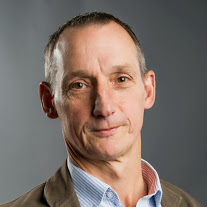
What is it with singing?
Many of us can’t seem to get enough of it! Crowds chant at football matches, revellers croon at New Year parties, drivers warble along to their stereos and hardly any public occasion is complete without a rousing rendition of the national anthem. There’s something about singing that grabs us and brings us joy.
Not all of us, though. If we’re honest, some of us struggle. We sing softly for fear our off-key croaks will be heard. We shuffle awkwardly as the music begins. We “goldfish” wildly in the hope that we can give the impression of singing without ever making a sound. And that got me wondering – how come we don’t have any non-singing churches? Wouldn’t that be a sure-fire winner with the tone deaf?
The Bible, of course, is big on singing. There’s an extensive hymn book in the middle – songs of David, Asaph and the like. And the storyline is full of song from start to finish…
At creation the angels sang (Job 38:7) and, in glory, so do the redeemed (Revelation 14:3). Right through Scripture, big and small events are marked by choruses of voices bringing praises to God. The people cross the Red Sea – Miriam leads them in song (Exodus 15). Moses delivers the law and is determined the people should remember it – so teaches them a song (Deuteronomy 32). The ark comes to the temple – the people raise their voices (2 Samuel 6:5). Solomon waxes lyrical about his beloved – and bursts into song (Song of Songs). Paul and Silas in prison – and they sing (Acts 16:25).
It’s absolutely everywhere. In fact, I’ve read somewhere that after the command to pray, the next most common is the instruction to sing. (I’ve not checked – you count them if you want).
So, what is it with singing?
Yip Harburg, who wrote the lyrics for that Wizard of Oz classic ‘Somewhere over the rainbow’, also wrote this:
Words make you think a thought; music makes you feel a feeling; a song makes you feel a thought.
Many of us know the gap that exists between our thoughts and our feelings – truths that are known but not felt: God is trustworthy, but fear remains; sins are forgiven but guilt abounds. We know this gap exists not just because we see it in those we counsel but because we also experience it in our own hearts. Closing the gap is often the central task of counselling. Turning professed belief into functional belief. And we can talk for hours trying to make it happen.
But just recently I’ve been wondering if we ought to sing more… If, perhaps, a little ‘music therapy’ might not go amiss. Could we be overlooking the power of song? Missing the spiritual therapeutic that is found in singing aloud? Maybe singing is a much more central that we think. Maybe it’s a key part of God’s plan for driving truth into our hearts, of getting theology inside.